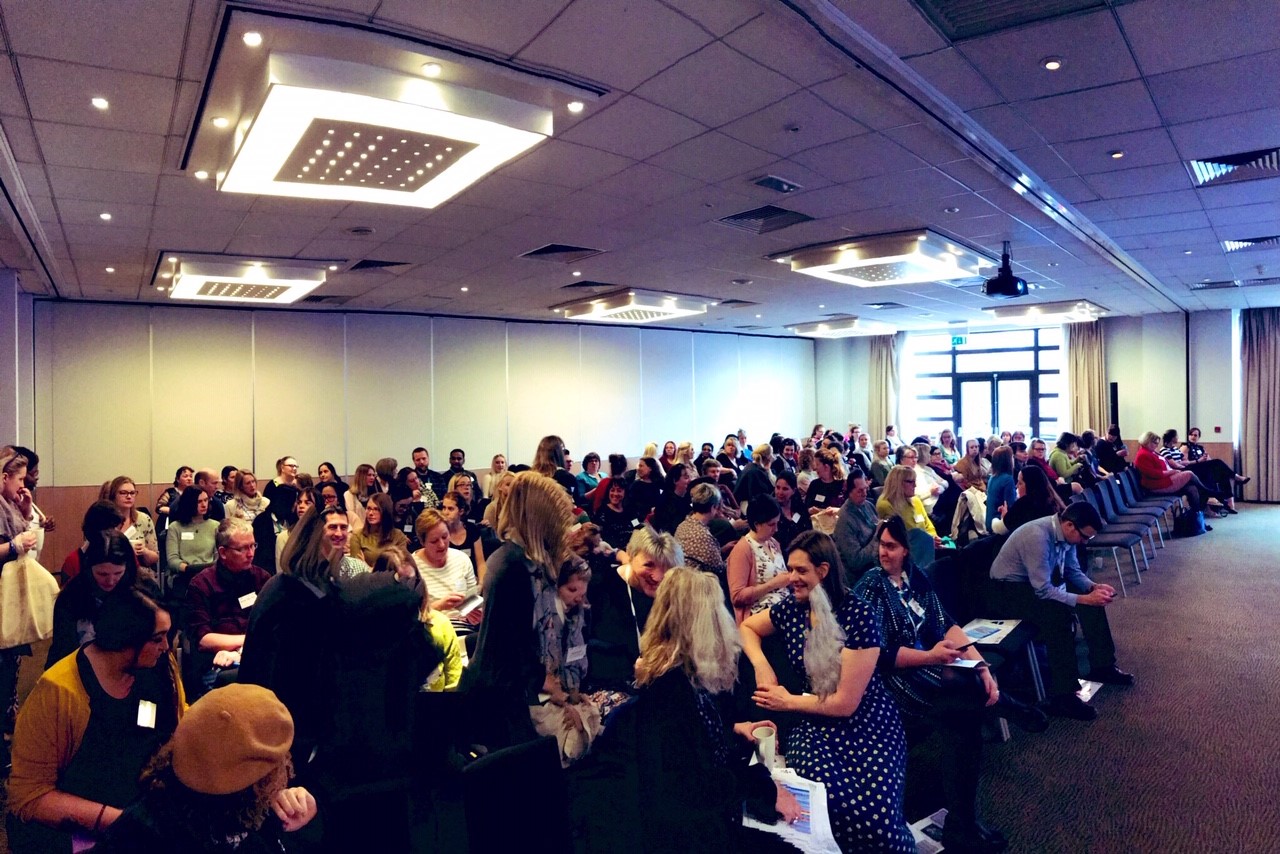News
Frailty experts run education day for health professionals; raising the profile of frailty and the skills we need to deal with an ageing population
5 April 2019

News
5 April 2019

“Frailty is not part of the natural ageing process and can be made better or worse over time with the right assessment and support,” commented Joshua Hammond, Frailty Practitioner at Southern Health NHS Foundation Trust at the very first Frailty Focus conference last month.
“Frailty is when someone doesn’t have the natural reserves and inbuilt ability to be able to bounce back after a minor stressor such as a fall, change in medication or infection,” explains Joshua. “This conference was designed for health professionals to learn about the syndromes of frailty and the effects these have on people”.
Joshua was joined by key speakers Dr Dawne Garrett, Professional Lead for Older People and Dementia Care, Royal College of Nursing, Wessex Academic Health Science Network (AHSN), as well as Southern Health’s Consultant Nurse for Frailty, Dr Abigail Barkham.
Much more about the conference, including the day's slides, downloadable resources, videos and a link to pledge to become a Frailty Friend or Champion are all available here.
Currently 20% of Hampshire’s is over 65 years*, with an ageing population we need to prepare the public and health professionals to improve frailty and help older people live well for longer. Attendees were able to listen to how frailty can affect a person and the impact it can have on patients and their families. Identifying frailty can be challenging. Not all older people have frailty and not all people living with frailty are older. The five frailty syndromes to look out for are:
To bring this to life, virtual reality headsets were available to simulate how it can feel to live with frailty. Amelia Abbott, Clinical Dementia Research Champion at the Memory Assessment and Research Centre (MARC) commented “Using the VR headset to learn more about frailty was such an insightful experience and very creative way to learn about the challenges of frailty.”
Dr Jane Williams, Divisional Director for Transformation at Southern Health said “By identifying that you or a loved one may have frailty means that something can be done to avoid it from worsening. Even if you are not currently considered to be frail, it is good to accept that it can happen to anyone and that we can all take measures to prevent it. Ignoring frailty can lead to a higher risk of unexpected or dramatic changes in your physical and mental wellbeing after an apparently minor event. These include common illnesses, infection or taking a new medication. This may lead to increased bed rest or even a hospital admission. Being admitted to and staying in hospital can have a have big impact on your physical health.”
“We are passionate about the leading the way in the prevention and management of older people with frailty at Southern Health with support from our partners including Health Education Wessex and Wessex AHSN. Over the last few months we have taken great strides in putting this at the top of everyone’s agenda with the launch of our Frailty Friends campaign and developing services to support the patients we care for.” added Jane.
Kathy Wallis, Associate Director for Healthy Ageing at Wessex AHSN commented “We (Wessex AHSN) are really pleased to have been a sponsor for this event. This conference has been fantastic with great energy and enthusiasm from those attending. The focus on frailty conference and the launch of the frailty competencies strongly link with the AHSN work on the Wessex Acute Frailty Audit, which has shown the growing need for improved awareness and training on frailty for all health care professionals and those working with people who are living with frailty."
The conference was led by Southern Health and supported by Health Education England Wessex and Wessex AHSN.
Frailty Friends is a community of individuals with an interest in frailty, aiming to recognise frailty, access resources on supporting someone with frailty and help their communities live well with frailty.
For more information about the frailty work happening at Southern Health, click here.
Follow the Frailty Team on Twitter @FrailtyFriends
*1 in 5 of our population are over 65 years old (just over a fifth of our population) https://www.hants.gov.uk/socialcareandhealth/publichealth/jsna/demographysummary
Share
Need more information?
Contact the communications team:
(023) 8202 0858